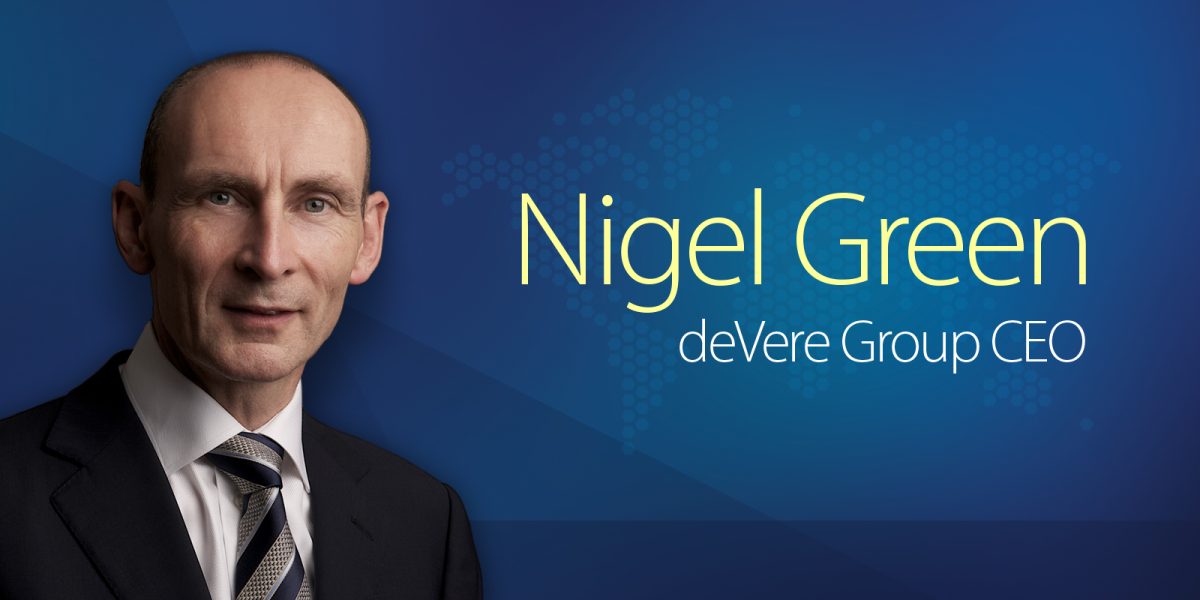 Lagos — The deepening global energy crisis underscores for investors the undeniable value, necessity and rewards of sustainable investing, says the CEO of one of the world’s largest independent financial advisory, asset management and fintech organisations.
Lagos — The deepening global energy crisis underscores for investors the undeniable value, necessity and rewards of sustainable investing, says the CEO of one of the world’s largest independent financial advisory, asset management and fintech organisations.
The observation from Nigel Green, chief executive and founder of deVere Group, which has $12bn under advisement, comes as consumers around the world face surging energy prices as demand rises as economies recover following the pandemic.
Mr Green notes: “The global energy crunch triggered by the world economy rebounding from the pandemic faster than was anticipated is impacting households and businesses across the world.
“From ongoing and increasing blackouts in China and India, to mass panic-buying in the UK and Europe, and urgent calls from the U.S. for OPEC nations to up oil production as fears continue to grow, the crisis is going to get a lot worse as the northern hemisphere moves into winter when energy demand is even greater.”
He continues: “The astronomical price surges are now in danger of pushing back the critical transition towards cleaner energy sources.
“However, savvy investors will be taking a wider, longer-term look at the situation.
“They will see that the current energy crisis is a combination of factors – including ongoing geopolitical tensions to which there are no quick fixes, and infrastructure and supply issues – and that these problems are not going away.
“It will bring into sharp focus that rather than staying with fossil fuels, the longer-term answer to this and future energy crunches is ESG (environmental, social and governance) investing.
“They will be moving quickly to have an early advantage, foreseeing the undeniable value, necessity and rewards of sustainable investing.”
The ESG umbrella term covers three main factors. E is for the environment and includes issues such as climate change policies, carbon footprint and use of renewable energies. S is for social and includes workers’ rights and protections. Finally, G is for governance and includes diversity of the board and corporate transparency.
In June 2020, around 26% of deVere clients around the world were eyeing exposure, or already had exposure, to ESG investments. This has now increased to 44% over the past 12 months.
This trend is set to gain further momentum, says Nigel Green, with three key factors pushing the movement.
“First, governments and regulators are becoming increasingly supportive of ESG criteria which boosts investor confidence. For instance, despite recent alarm over energy prices, the United States is putting climate concerns temporarily on the back burner, yet the Biden Administration is overall taking a tougher approach on the use of fossil fuels and is promising swift action to tackle climate change.
“Additionally, the new chairman of the Securities and Exchange Commission, the U.S.’s financial regulator, Gary Gensler, is a proponent and is likely to strengthen investment and disclosure rules to help the U.S. catch up with Europe.
“Second, as millennials who are more likely to seek responsible investment options, become the major beneficiaries of the largest intergenerational transfer of wealth—an estimated $30 trillion in the next few years—we can expect both retail and institutional investors to continue to pile into ESG.
“And third, the pandemic has focused minds on the fact that the health of our planet directly affects human health which, in turn, affects the way we all live and work.
“What is perhaps more impressive is that those investments with robust ESG credentials are continuing to outperform the market and experience lower levels of volatility.”
deVere has recently highlighted its own commitment to back ESG values by being one of 18 founding signatories of the UN-backed Net Zero initiative, the international alliance of powerhouse global finance companies that will help accelerate the transition to a net zero financial system.
The membership means the organisation is committed to aligning all relevant products and services to achieve net zero greenhouse gases by 2050 and to set meaningful interim targets for 2025. These commitments are in addition to the members setting Science Based Targets to reduce operational emissions in line with limiting global temperature rises to 1.5 degrees Centigrade.
The deVere CEO concludes: “It’s becoming increasingly clear that the best way and most sustainable way to solve this and future energy crises is to accelerate the transition towards cleaner power.
“Investors, keen to get ahead of the curve as well as earn profits with purpose, will be more keenly seeking out the opportunities as the world scrabbles to mitigate the environmental, economic and social fallout of the current situation – a situation which is likely to be a constant risk.”



